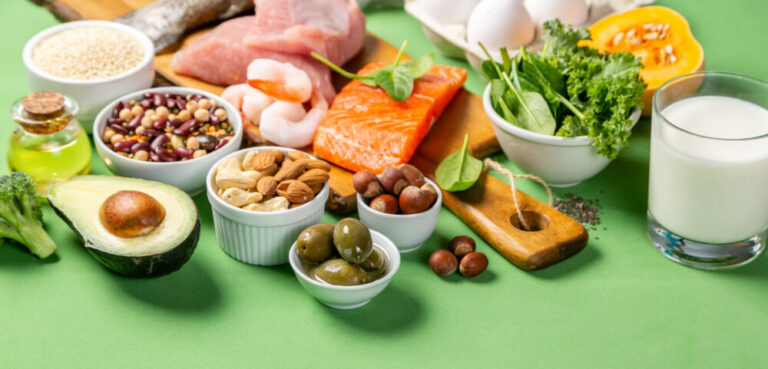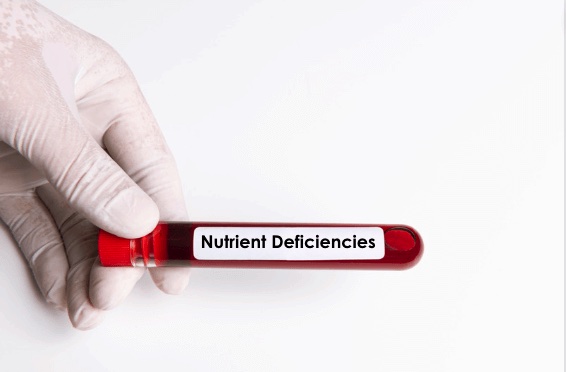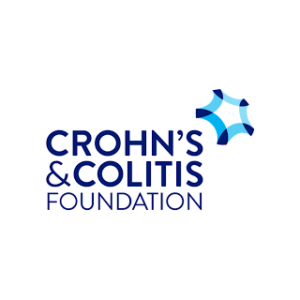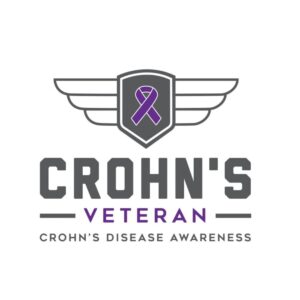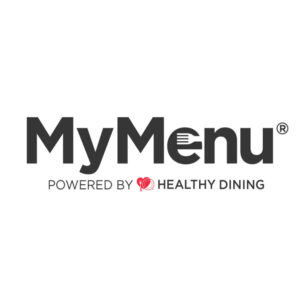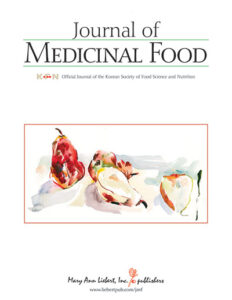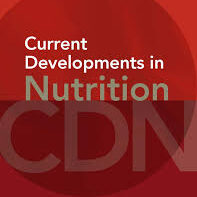Specific Carb Diet (SCD) Diet vs Mediterranean Diet for Crohn’s disease
Danielle Gaffen, MS, RDN, LD
- Last Updated
My husband was diagnosed with Crohn’s disease 16 years ago. Most of his GI doctors over the years have told him that the foods that he eats should not affect his Crohn’s disease symptoms. But I beg to differ…(If you’d like to read more about my husband’s story, please click here).
Today, I’d like to share the results from a new nutritional research study just published in the Journal of Gastroenterology comparing the effects of the SCD Diet to a Mediterranean Diet in adults with Crohn’s disease!
Fast Facts About the Study:
Study Name:
Journal:
- Gastroenterology
Publication Acceptance date:
- May 14, 2021
Purpose of the study:
- This study compared the effectiveness of the Specific Carbohydrate Diet (SCD) and Mediterranean Diet as treatment for people with Crohn’s disease with mild to moderate symptoms.
New findings:
- In adults with Crohn’s disease and mild to moderate symptoms, the Specific Carbohydrate Diet was not superior to a Mediterranean Diet to achieve symptomatic remission.
Impact:
- Given these results, the greater ease of following the Mediterranean Diet, and other health benefits associated with the Mediterranean Diet, the Mediterranean Diet may be preferred to the SCD Diet for most patients with Crohn’s disease with mild to moderate symptoms.
Comparing the SCD Diet and Mediterranean Diets
What is the SCD Diet anyways?
- A diet with a cult following, this diet is an exclusion diet popularized by Elaine Gottschall in the book Breaking the Vicious Cycle [2].
- It allows proteins, fats, and carbohydrates that consist of one sugar molecule (like glucose found in honey, fruits, and some veggies, or the lactose found in some milk products). The idea behind one-sugar-molecule carbs is that they are the easiest for the gut to digest, reducing the risk of bad bacteria overgrowing in the gut microbiome and causing inflammation.
- This diet allows lactose-free products, fresh fruit and veggies, nuts, eggs, certain yogurt, aged cheeses, and unprocessed meats.
- This diet does not allow most dairy products, grains, most beans, canned fruits and veggies, refined sugars, processed or canned or smoked meats, packaged foods, tea, or coffee.
- Small studies have provided preliminary evidence that use of the SCD Diet or modified SCD Diet improves symptoms and reduces bowel inflammation [3–6]. However, large controlled trials haven’t been published to show that the SCD is superior to other therapeutic diets.
What is the Mediterranean Diet?
- The Mediterranean diet is characterized by a high consumption of veggies, fruits, cereals, nuts, legumes, unsaturated fat (such as olive oil), a medium intake of fish, and dairy products. This diet also includes a low consumption of meats and sweets.
- Several nutritional research studies have identified a lower risk of Crohn’s disease among populations consuming a diet consistent with the traditional Mediterranean diet (such as high in fresh fruits, vegetables, nuts, fish and whole grains, and use of olive oil as the predominant fat source) [3,4].
Consumption of a Mediterranean Diet has also been associated with reduced symptoms and improved quality of life after Crohn’s disease diagnosis [5], and documented the ability and effectiveness of this diet to reduce inflammation [6] , cardiovascular disease [7,8], cancer [9], and mortality [10].
Tell me more about the study!
Participants:
- 101 participants were randomly assigned to consume the SCD Diet and 93 participants were randomly assigned to consume a Mediterranean Diet.
- 33 participants withdrew from the study prior to week 6, and 37 participants withdrew from the study between weeks 6 and 12.
- Overall, 63% of participants were female (37% male), 91% white, and 4% Hispanic ethnicity.
- The median BMI at screening was 25.1.
- 61% of participants reported they didn’t have strictures or penetrating complications.
- At screening, 57% of participants were taking a biologic medication, 67% had used one or more anti-TNF therapy in the past, and 11% had used 3 or more. Confirmed evidence of inflammation at baseline by CRP, calprotectin, or colonoscopy was documented in 47% of participants.
- 1 participant who received the Mediterranean Diet and 2 who received the SCD were excluded from the study’s analysis because their symptoms were too mild in comparison to the rest of the study’s participants.
Methods:
- For the first six weeks of the trial, participants received weekly delivery of prepared meals consistent with their assigned diet (breakfast, lunch, dinner and two snacks per day). Meals were prepared by Healthy Chef Creations (Orlando, FL) based on menus developed by the food vendor in consultation with the study’s Registered Dietitian. Women were provided 2500 kcal per day and men 3000 kcal per day. Participants were not required to consume all of the food.
- Participants assigned to the SCD Diet received a three-day starter diet as recommended in Breaking the Vicious Cycle [2]. Meals were designed to be heated in an oven or microwave. No other preparation was required.
- After the first 6 weeks, participants were instructed on how to purchase and prepare their own meals and snacks. Participants had the option of purchasing some or all of their meals from Healthy Chef Creations.
What researchers were measuring in the study:
While the researchers were getting a lot of great data and measuring many factors in the study participants, researchers focused on three main areas after 6 and 12 weeks on the diet:
Symptomatic remission
-
- FYI there are different definitions of IBD remission. Symptomatic remission is a term that doctors use to describe that your symptoms have improved or gone away, yet you still may have inflammation in your GI tract.
- Please note that symptomatic remission is different from other types of remission, such as:
- endoscopic remission
- when no inflammation is seen when your doctor sees the lining of your intestines during a colonoscopy or sigmoidoscopy
- biochemical remission
- when lab tests done on the blood or stool don’t show any of the hallmark signs of IBD.
- histologic remission
- when a biopsy is taken and examined, and no inflammation is seen.
- surgical remission
- when surgery brings about a time of remission with reduced inflammation or symptoms.
- endoscopic remission
- Please note that symptomatic remission is different from other types of remission, such as:
- FYI there are different definitions of IBD remission. Symptomatic remission is a term that doctors use to describe that your symptoms have improved or gone away, yet you still may have inflammation in your GI tract.
Fecal calprotectin
- Fecal calprotectin is a stool (fecal) test that is used to detect inflammation in the intestines. A higher level of fecal calprotectin means more inflammation present in the intestines, and is generally associated with Crohn’s disease (and ulcerative colitis). [11]
C-Reactive Protein (CRP)
- CRP is a lab test that is used to measure inflammation. The level of C-reactive protein increases when there’s inflammation in your body. (https://www.mayoclinic.org/tests-procedures/c-reactive-protein-test/about/pac-20385228)
How can we really know if people followed the diets while in the research study?
At weeks 3, 6, 9, and 12, researchers asked participants to self-report
their adherence to the study diet during the past week on the following scale:
- followed the diet all of the time
- some of the time
- none of the time
Participants then completed a 24-hour dietary recall at:
- baseline (when the study started)
- during week 6
- during week 12
Results
Symptomatic Remission:
- Within the SCD and Mediterranean Diet groups, there were reported improvement in symptoms, fatigue, sleep interference, pain, and social isolation.
- How much these symptoms improved with the SCD diet was not greater or worse than the symptom improvements noted with the Mediterranean Diet!
The percentage of participants who achieved symptomatic remission at week 6 was not superior with the SCD Diet when compared to the Mediterranean Diet
- SCD: 46.5% of participants
- Mediterranean Diet: 43.5% of participants
Again, at week 12, the percentage of participants who achieved symptomatic remission was not superior in the SCD Diet to the Mediterranean Diet:
- SCD: 42.4% of participants
- Mediterranean Diet: 40.2% of participants
Weight:
- The average percent weight change for participants was not significant between the two diets.
C-Reactive Protein (CRP):
- High-sensitivity CRP did not change significantly in either diet group.
Fecal Calprotectin:
- Reduction in fecal calprotectin concentration was significant only in the SCD group.
Quality of Life Measures
- Both diet groups reported improvements in quality-of-life measures during the research study, such as improvements in fatigue, pain interference, social isolation, and sleep disturbance.
Back and Joint Symptoms
- Most patients did not have severe back or joint symptoms at enrollment into the trial, but no significant difference in back or joint symptom pain was reported between dietary groups.
Adherence to Diet
Like most nutritional research studies, the only way to know if study participants adhered to the diet is through self-reporting.
Adherence to the diet all of the time in the 6th week of the study was reported by:
- SCD Diet: 68% of participants
- Mediterranean Diet: 64% of participants
Among those reporting adherence to the diet all of the time during the 6th week
of the study, symptomatic remission was achieved in:
- SCD Diet: 52% of participants
- Mediterranean Diet: 49% of participants
By the end of the study, 40% of SCD Diet participants and 42% of Mediterranean Diet participants reported following their respective diets all of the time. In both groups, there was a significant increase in consumption of fruits and vegetables compared to the start of the study. Diet quality also improved in both groups in comparison to the start of the study.
Microbiome
- The two diet groups didn’t show any significant change in the microbiome during the study that were related to the diets.
What do these results actually mean?
- This randomized trial compared the effectiveness of SCD Diet and the Mediterranean Diet to treat symptoms and inflammation in Crohn’s disease.
- Improvement in symptoms were seen with both diets – the SCD Diet was not superior to the Mediterranean Diets to achieve symptomatic remission at 6 or 12 weeks.
- While symptomatic remission was common, few patients achieved combined symptomatic remission and lowering of inflammation.
- Based on the results of this trial, the greater ease of following the Mediterranean Diet, and the other health benefits associated with the Mediterranean Diet, these results suggest that the Mediterranean Diet would be preferred to the SCD Diet for most patients with Crohn’s disease with mild to moderate symptoms.
- When the participants were given food during the first 6 weeks of the study, they reported higher adherence to the diet. Alternatively, when the participants weren’t provided the food for the study diets during the final 6 weeks of the study and had to prepare the meals themselves, they reported lower adherence to the diet. The lower self-reported adherence in the second 6-weeks of the study suggests that adherence may decline significantly when patients are expected to buy and prepare meals themselves. The researchers asserted that this could also reflect the challenge of maintaining a diet pattern that differs from one’s usual diet.
- The Mediterranean and SCD Diets used in this research study had some similarities, which included an emphasis on fresh fruits and vegetables. The lack of difference in symptomatic outcomes and quality of life between the treatment arms could be from this or other similarities of the study diets, such as both being prepared with fresh ingredients.
- The high percentage of participants who achieved symptomatic remission, suggests that it may not be necessary to recommend a low fiber diet for patients with mild to moderate symptoms of non-stricturing Crohn’s disease.
- Strict adherence to a diet may be necessary to achieve optimal results.
- The mechanisms whereby therapeutic diets may improve Crohn’s disease symptoms and inflammation remain to be fully made clear or explained. Both of the study diets were prepared from fresh ingredients by Healthy Chef Creations, thus were similar in terms of eliminating food additives. Because Crohn’s disease has been associated with alteration in the gut microbiome (dysbiosis) and some have hypothesized that effectiveness of SCD is through a positive change of the gut microbiome, researchers used whole genome sequencing to compare the fecal microbiome among those receiving the two diets. The richness and diversity of the microbiome were comparable between the groups and remained stable throughout the study. These changes observed were not related to the diet or symptomatic remission but were weakly associated with fecal calprotectin concentration.
In conclusion, the Mediterranean Diet and SCD Diet were well tolerated among patients with Crohn’s disease with mild to moderate symptoms. Symptomatic remission was common with both diets, was not superior with SCD relative to Mediterranean diet and did not appear to be influenced by the presence or absence of confirmed inflammation prior to randomization. Neither diet was associated with normalization of CRP concentration. Given the lack of improvement in CRP, additional controlled trials are needed to validate the reduction in fecal calprotectin observed after 6 weeks with the SCD Diet. For patients with Crohn’s disease with mild to moderate symptoms, the Mediterranean Diet may be preferred to the SCD Diet due to its well documented general health benefits and relative ease of implementation as compared to SCD.
As you may know, my husband has Crohn’s disease. We’ve experimented with the Specific Carbohydrate Diet during the pandemic when he was flaring and working from home. While we did see some really positive changes on the SCD Diet (less inflammation, cramps, and urgency to use the restroom), we truthfully found it too restrictive for him. When we re-introduced foods that were on the Mediterranean Diet, which he tolerated and he liked, we knew we had found a recipe for his success.
Looking to learn more about nutritional research for people with IBD? Learn more about my Eating for Crohn’s & Colitis Remission Program:
Eating for Crohn’s & Colitis Remission Program
References:

